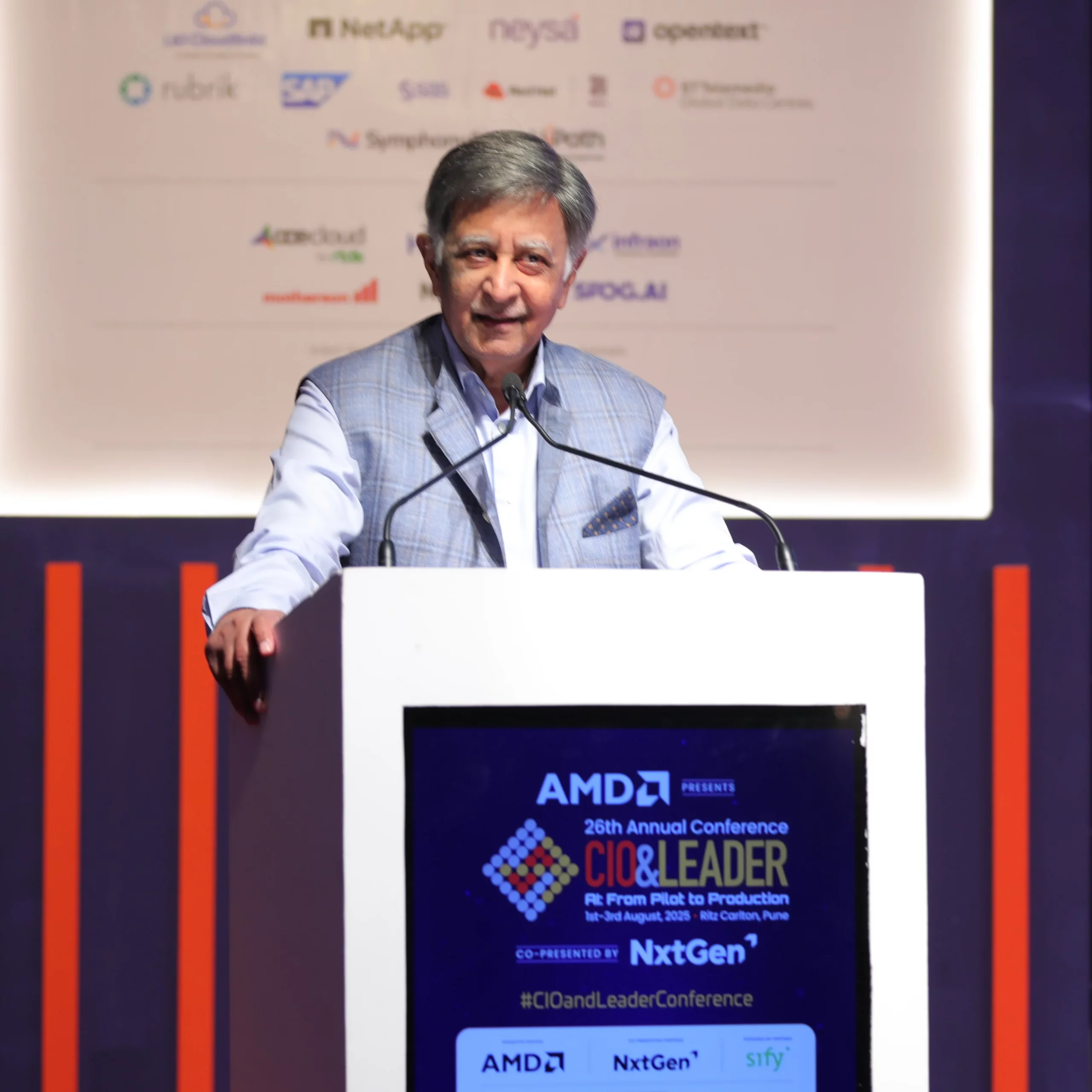Kalyani argues that tomorrow’s CIOs and CEOs must embody speed, agility, and entrepreneurial spirit to keep pace with technological change.

“Innovation at scale is not just the privilege of big tech; it’s the power of individuals and startups to create global impact,” declared Babasaheb N. Kalyani, Chairman of the Kalyani Group, as he took the stage. A veteran industrialist who built Bharat Forge into the world’s largest forging manufacturer, Kalyani brought both humility and urgency to a keynote that traced the arc of technological revolutions from slide rules to artificial intelligence and their implications for India’s future.
A Journey Across Eras of Disruption
Kalyani, an MIT-trained engineer, admitted he was from “a different generation,” one that learned engineering with slide rules, not supercomputers. Yet, his sharp recollection of how technology has repeatedly reshaped business painted a vivid timeline: the internet in the mid-1990s, Blackberry in 2000, the iPhone in 2007, and the Industry 4.0 wave that connected machines seamlessly to eliminate inefficiencies. Each disruption, he argued, transformed not only businesses but also daily human experience.
“I remember a time when calling Tata Motors from Pune took eight hours,” he said. “Today, a villager on the roadside has instant connectivity in his palm.”
The Inflection Point of AI
But if smartphones defined the digital age, Kalyani emphasized, artificial intelligence represents the new frontier. His visit to Google’s New York offices in 2018, where devices like Google Home demonstrated machines processing information in a manner similar to the human brain, became an eye-opener. What struck him most was Google’s philosophy: any innovation must impact at least a billion people and achieve 10x growth, Kalyani noted.
Today, the democratization of AI excites him even more. He pointed to startups like Open Evidence, whose AI-powered medical platform “Deep Consult” now enables millions of healthcare consultations each month. “This is not just innovation,” he said. “This is impact at scale.”
India’s Opportunity and Responsibility
Kalyani did not shy away from the geopolitical undertones of technology adoption. For India to avoid being overshadowed by global powers, he stressed, it must not only adopt AI but also architect value, scale responsibly, and lead with purpose. The key expectation from business leaders today, he argued, is “speed and agility from innovation to execution.”
His rallying cry was clear: AI should not just be about more intelligent machines, but about empowering people. “The future isn’t about machines replacing us,” he said. “It’s about people building a smarter world and for us, a smarter country.”
From Information to Innovation to Entrepreneur
Kalyani concluded with a provocative redefinition of leadership in the AI era: the “I” in CIO, he said, is evolving from Information to Innovation to Entrepreneurship. For a man who has spent over five decades transforming Indian manufacturing into a global force, it was both a reflection of lived wisdom and a challenge for the next generation of leaders.